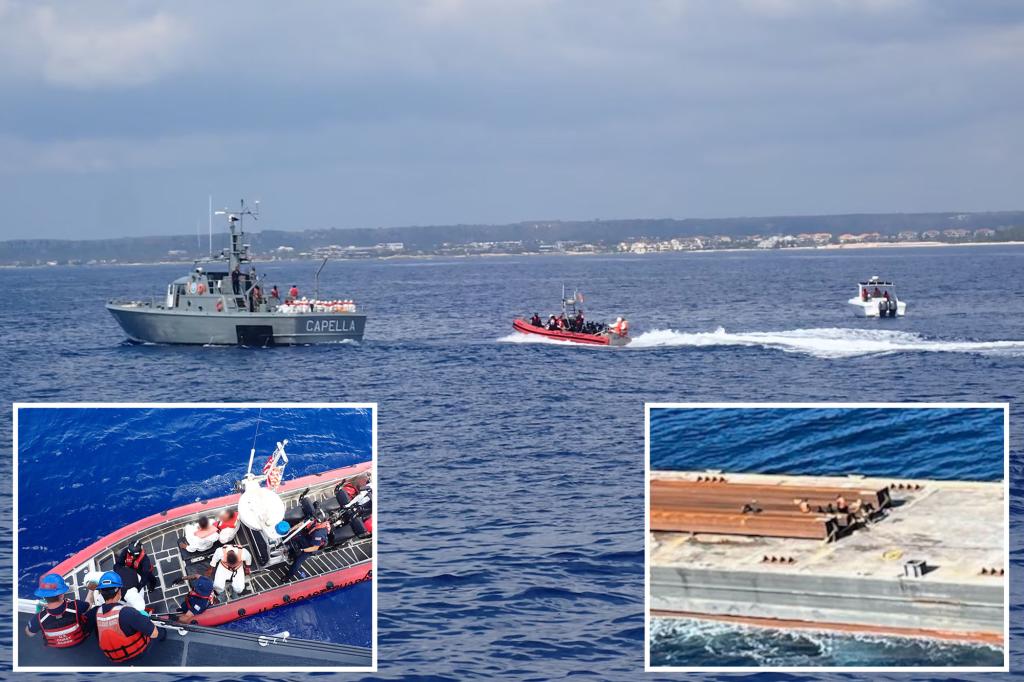Over the weekend, the US Coast Guard intercepted three separate craft in the Mona Passage loaded with migrants attempting to reach American soil. The Coast Guard Cutter Joseph Texanos shipped a total of 101 migrants back to the Dominican Republic on Monday. The interception was part of ongoing efforts with local, federal, and Dominican Republic Navy partners to prevent illegal maritime migration voyages. Commander Gerard Wenk emphasized the dangerous conditions of these voyages, which often involve grossly overloaded and unseaworthy vessels that are susceptible to capsizing due to unpredictable weather patterns, potentially resulting in loss of life.
One of the intercepted boats was described as “a grossly overloaded makeshift vessel” and was detected by a Coast Guard HC-144 Ocean Sentry plane. The vessel was carrying 34 Dominican migrants and was picked up by a cutter. Earlier in the day, a tug boat captain reported a group of migrant stowaways on a towed barge, leading to the interception of 11 migrants, 10 from the Dominican Republic and one from Haiti. In the first encounter, 57 migrants, 51 from the Dominican Republic and six from Haiti, were spotted by the HC-144 northwest of Puerto Rico on Saturday aboard another overcrowded makeshift boat. All migrants intercepted over the weekend were sent back to their home countries on Monday.
The Coast Guard’s efforts in the Mona Passage have resulted in the interception of a total of 932 migrants between October 1 and the end of last month. The majority of these migrants, 890, were from the Dominican Republic, with 41 from Haiti and one from Venezuela. The Coast Guard continues to warn against the dangers of attempting these illegal maritime voyages due to the risks posed by poorly maintained vessels, overloading, and unpredictable weather conditions. These efforts underscore the shared commitment of local, federal, and international partners to prevent unlawful maritime migration and ensure the safety of all individuals at sea.
Commander Wenk emphasized the importance of cooperation between agencies and countries in intercepting and preventing illegal maritime migration. These joint efforts have led to numerous successful interceptions and returned migrants to their home countries, preventing potential tragedies at sea. The dangers of these voyages cannot be overstated, and the Coast Guard’s vigilance is crucial in ensuring the safety and security of all individuals traveling through the Mona Passage. The unwavering resolve to stop unlawful maritime migration remains a top priority for the Coast Guard and its partners, as they work together to enforce maritime laws and prevent further attempts by migrants to reach American soil through dangerous and illegal means.
The recent interceptions highlight the ongoing challenges faced by the Coast Guard in preventing illegal maritime migration and protecting the safety of migrants attempting these perilous voyages. The dangerous conditions of overcrowded and unseaworthy vessels, coupled with unpredictable weather patterns in the Mona Passage, pose significant risks to the lives of those attempting the journey. By intercepting and returning migrants to their home countries, the Coast Guard aims to deter further attempts and ensure the safety and security of all individuals traveling by sea. These efforts underscore the importance of collaboration and coordination between agencies and nations to address the root causes of illegal maritime migration and prevent future tragedies at sea.















